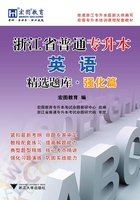
32
The way people hold to the belief that a fun-filled, pain-free life equal to happiness actually reduces their chances of ever attaining real happiness. If fun and pleasure are equal to happiness then pain must be equal to unhappiness. But in fact, the opposite is true: more often than not things that lead to happiness involve some pain.
As a result, many people avoid the very attempts that are the source of true happiness. They fear the pain inevitably brought by such things as marriage, raising children, professional achievement, religious commitment and self-improvement.
Ask a bachelor why he resists marriage even though he finds dating to be less and less satisfying. If he is honest he will tell you that he is afraid of making a commitment, for commitment is in fact quite painful. The single life is filled with fun, adventure and excitement.Marriage has such moments, but they are not its most distinguishing features.
Couples with infant children are lucky to get a whole night's sleep or a three-day vacation. I don't know any parent who would choose the word—fun to describe raising children. But couples who decide not to have children never know the joys of watching a child grow up or of playing with a grandchild.
Understanding and accepting that true happiness has nothing to do with fun is one of the most liberating realizations. It liberates time: now we can devote more hours to activities that can genuinely increase our happiness. It liberates money: buying that new car or those fancy clothes that will do nothing to increase our happiness now seems pointless. And it liberates us from envy: we now understand that all those who are always having so much fun actually may not be happy at all.
1.According to the author, a bachelor resists marriage chiefly because____.
A.he is reluctant to take on family responsibilities
B.he believes that life will be more cheerful if he remains single
C.he finds more fun in dating than in marriage
D.he fears it will put an end to all his fun adventure and excitement
2.Raising children, in the author's opinion, is____.
A.a moral duty
B.a thankless job
C.a rewarding task
D.a source of inevitable pain
3.From the last paragraph, we learn that envy sometimes stems from____.
A.hatred
B.misunderstanding
C.prejudice
D.ignorance
4.To understand what true happiness is one must____.
A.have as much fun as possible during one's lifetime
B.make every effort to liberate oneself from pain
C.put up with pain under all circumstances
D.be able to distinguish happiness from fun
5.What is the author trying to tell us?
A.Happiness often goes hand in hand with pain.
B.One must know how to attain happiness.
C.It is important to make commitments.
D.It is pain that leads to happiness.
1.【答案】A
【精析】由文章第三段第二句话“If he is honest he will tell you that he is afraid of making a commitment, for commitment is in fact quite painful.”可知,单身汉不愿意结婚的主要原因是他不愿承担婚姻的责任,故A项正确。
2.【答案】C
【精析】由文章第四段最后一句话“But couples who decide not to have children never know the joys of watching a child grow up or of playing with a grandchild.”可推测出,作者对抚养孩子这件事是持赞赏态度的,故选C项。
3.【答案】B
【精析】由文章最后一句话“And it liberates us from envy: we now understand that all those who are always having so much fun actually may not be happy at all.”可知,整天很开心的人不一定幸福,我们认为他们幸福只是我们自己的误解,所以我们会妒忌,就是源于误解,故选B项。
4.【答案】D
【精析】由文章最后一段第一句话“Understanding and accepting that true happiness has nothing to do with fun is one of the most liberating realizations.”可知,理解和接受真正的幸福与开心无关,明白了这一点是最具有解放意识的,所以区别幸福与开心才能理解什么是真正的幸福,故选D项。
5.【答案】A
【精析】由文章第一段最后一句话中的“more often than not things that lead to happiness involve some pain”可知,幸福总是与痛苦相伴的,之后的内容也是围绕此中心展开的,故选A项。